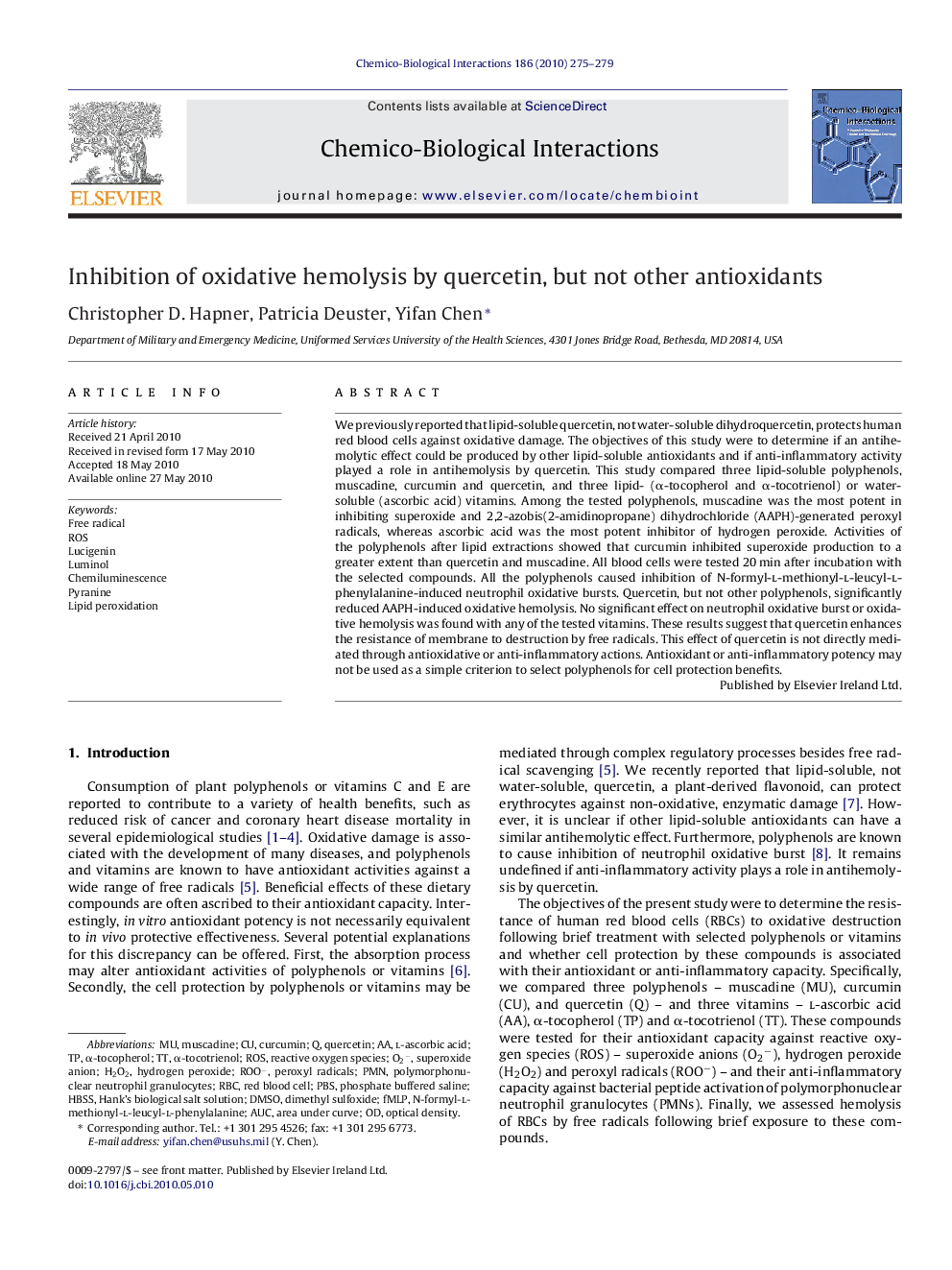| کد مقاله | کد نشریه | سال انتشار | مقاله انگلیسی | نسخه تمام متن |
|---|---|---|---|---|
| 2581097 | 1130173 | 2010 | 5 صفحه PDF | دانلود رایگان |

We previously reported that lipid-soluble quercetin, not water-soluble dihydroquercetin, protects human red blood cells against oxidative damage. The objectives of this study were to determine if an antihemolytic effect could be produced by other lipid-soluble antioxidants and if anti-inflammatory activity played a role in antihemolysis by quercetin. This study compared three lipid-soluble polyphenols, muscadine, curcumin and quercetin, and three lipid- (α-tocopherol and α-tocotrienol) or water-soluble (ascorbic acid) vitamins. Among the tested polyphenols, muscadine was the most potent in inhibiting superoxide and 2,2-azobis(2-amidinopropane) dihydrochloride (AAPH)-generated peroxyl radicals, whereas ascorbic acid was the most potent inhibitor of hydrogen peroxide. Activities of the polyphenols after lipid extractions showed that curcumin inhibited superoxide production to a greater extent than quercetin and muscadine. All blood cells were tested 20 min after incubation with the selected compounds. All the polyphenols caused inhibition of N-formyl-l-methionyl-l-leucyl-l-phenylalanine-induced neutrophil oxidative bursts. Quercetin, but not other polyphenols, significantly reduced AAPH-induced oxidative hemolysis. No significant effect on neutrophil oxidative burst or oxidative hemolysis was found with any of the tested vitamins. These results suggest that quercetin enhances the resistance of membrane to destruction by free radicals. This effect of quercetin is not directly mediated through antioxidative or anti-inflammatory actions. Antioxidant or anti-inflammatory potency may not be used as a simple criterion to select polyphenols for cell protection benefits.
Journal: Chemico-Biological Interactions - Volume 186, Issue 3, 5 August 2010, Pages 275–279